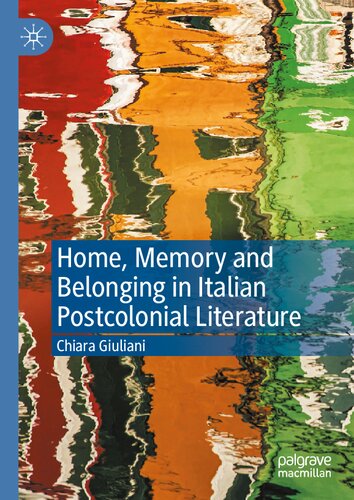

Most ebook files are in PDF format, so you can easily read them using various software such as Foxit Reader or directly on the Google Chrome browser.
Some ebook files are released by publishers in other formats such as .awz, .mobi, .epub, .fb2, etc. You may need to install specific software to read these formats on mobile/PC, such as Calibre.
Please read the tutorial at this link: https://ebookbell.com/faq
We offer FREE conversion to the popular formats you request; however, this may take some time. Therefore, right after payment, please email us, and we will try to provide the service as quickly as possible.
For some exceptional file formats or broken links (if any), please refrain from opening any disputes. Instead, email us first, and we will try to assist within a maximum of 6 hours.
EbookBell Team

5.0
58 reviewsThis book examines the meaning of home through the investigation of a series of public and private spaces recurrent in Italian postcolonial literature. The chapters, by respectively considering Termini train station in Rome, phone centres, the condominium, and the private spaces of the bathroom and the bedroom, investigate how migrant characters inhabit those places and turn them into familiar spaces of belonging. Home, Memory and Belonging in Italian Postcolonial Literature suggests “home spaces” as a possible lens to examine these specific places and a series of practices enacted by their inhabitants in order to feel at home. Drawing on a wide array of sources, this book focuses on the role played by memory in creating transnational connections between present and past locations and on how these connections shape migrants’ sense of self and migrants’ identity.